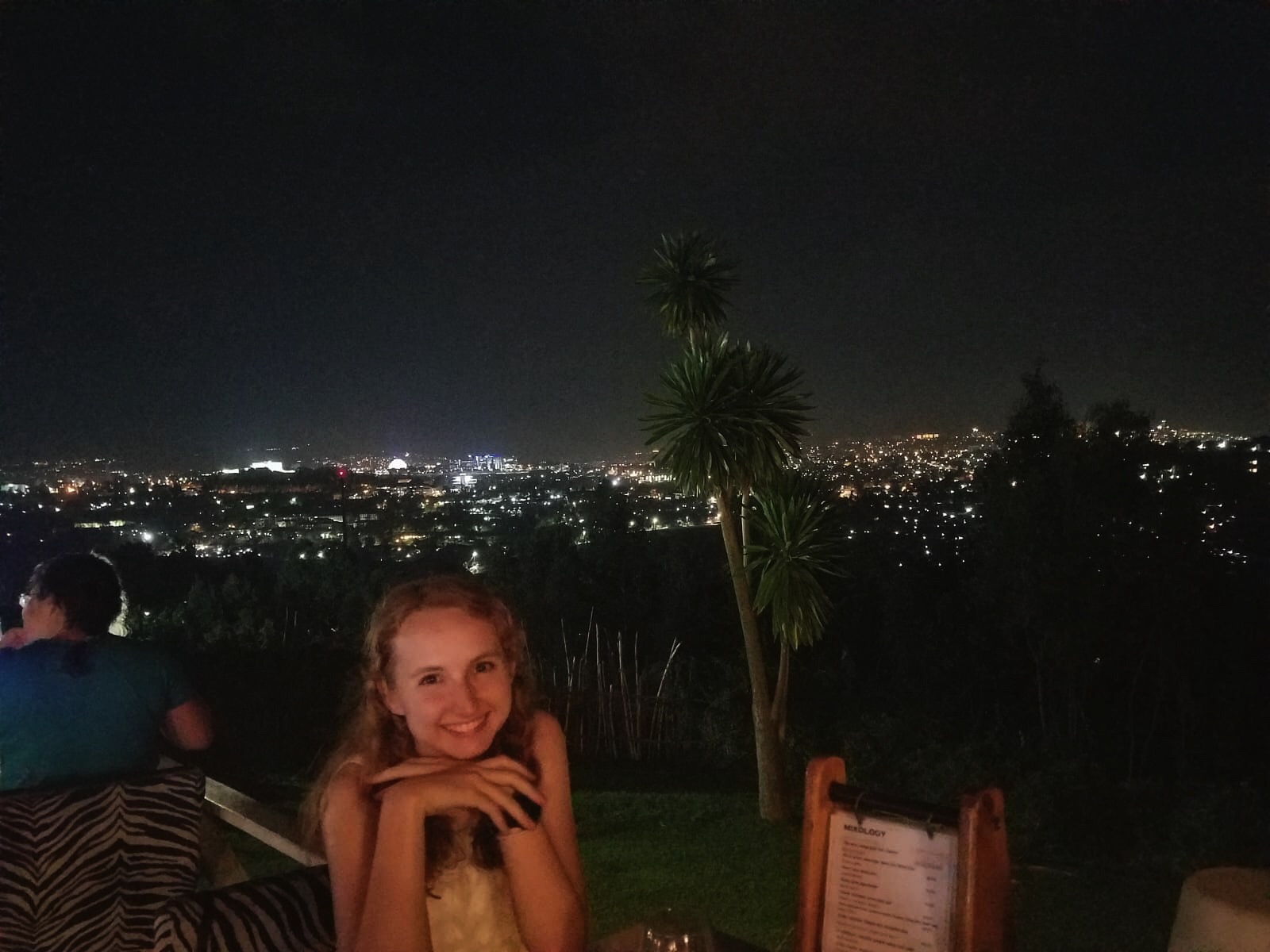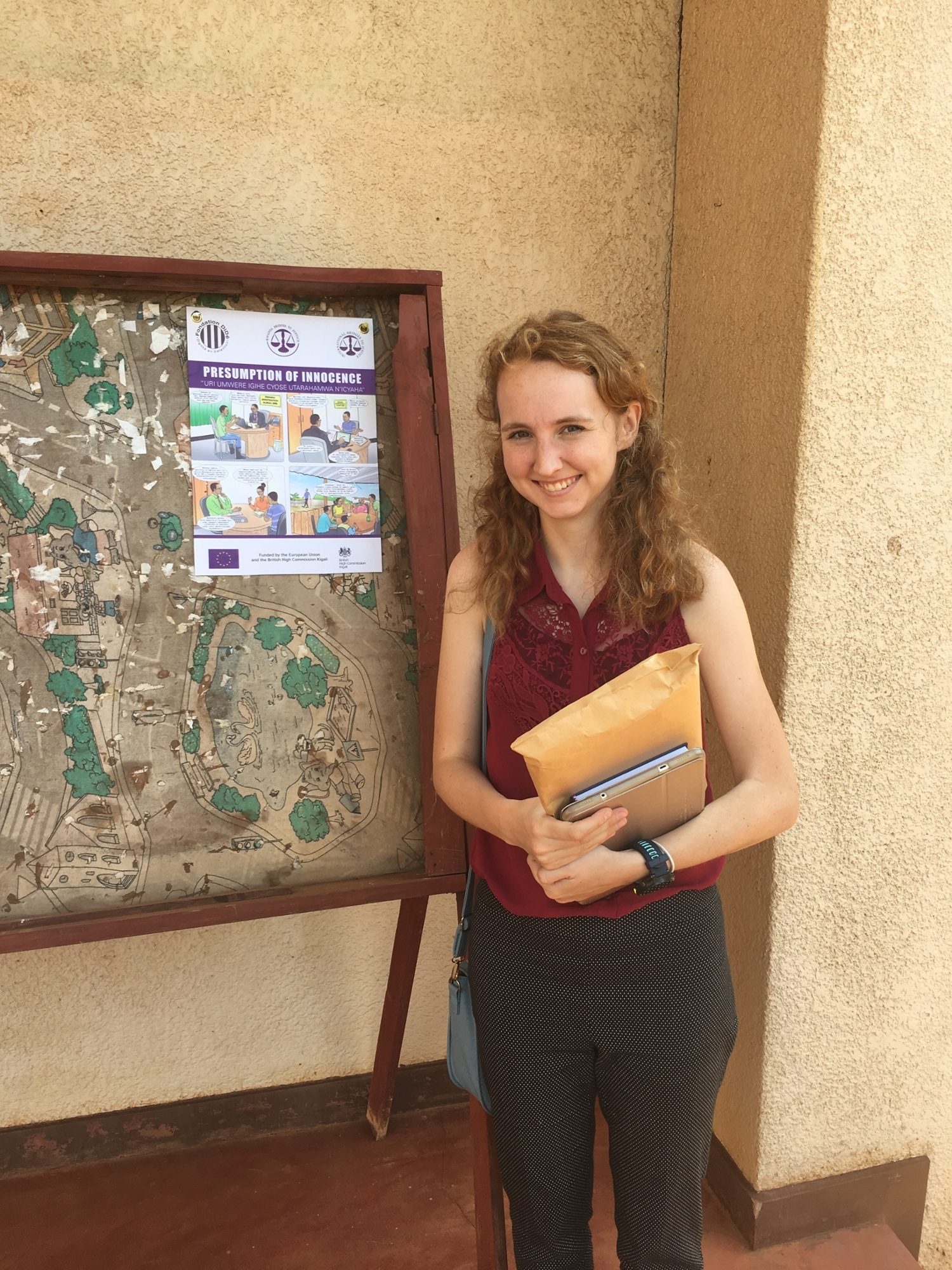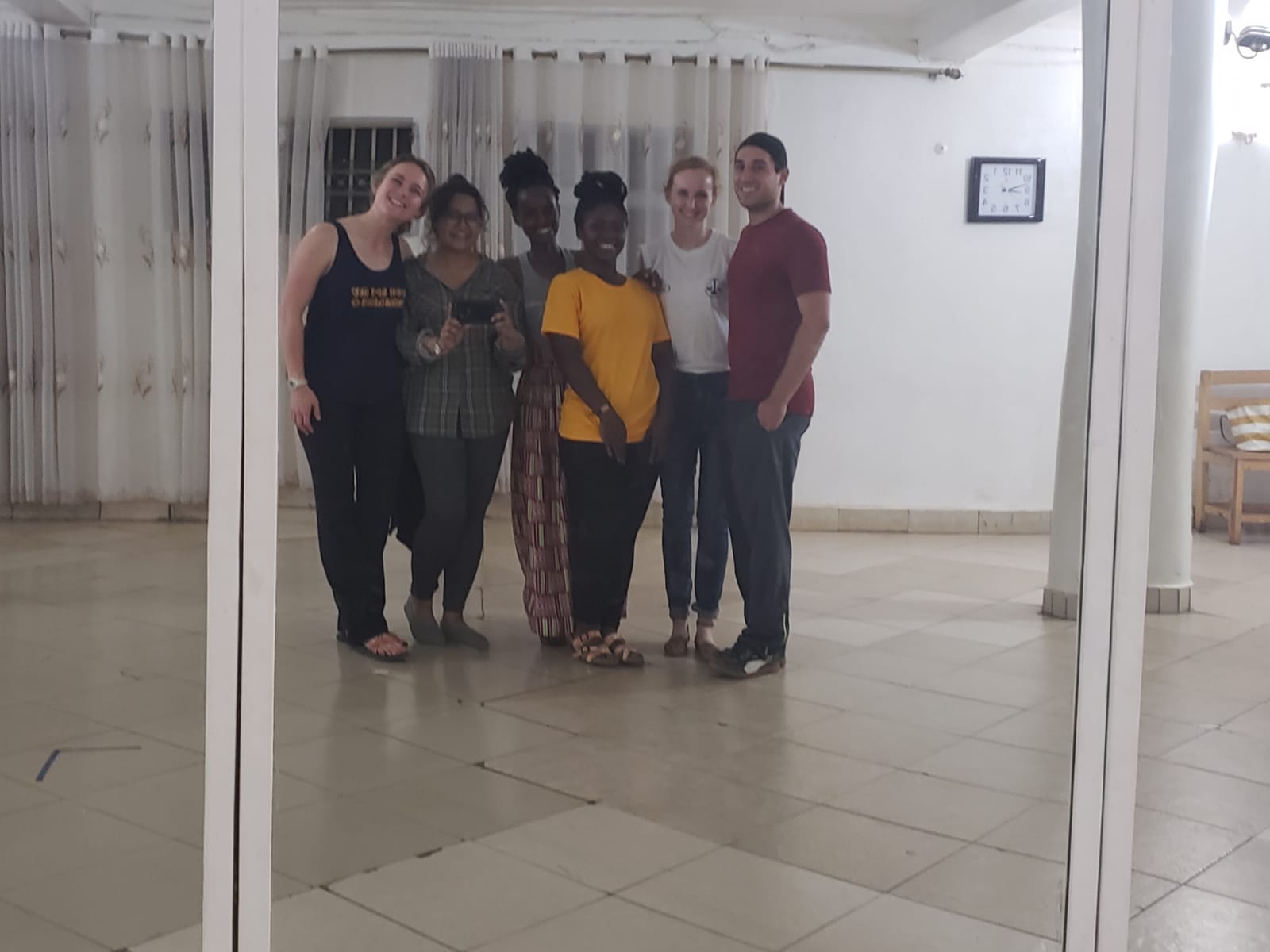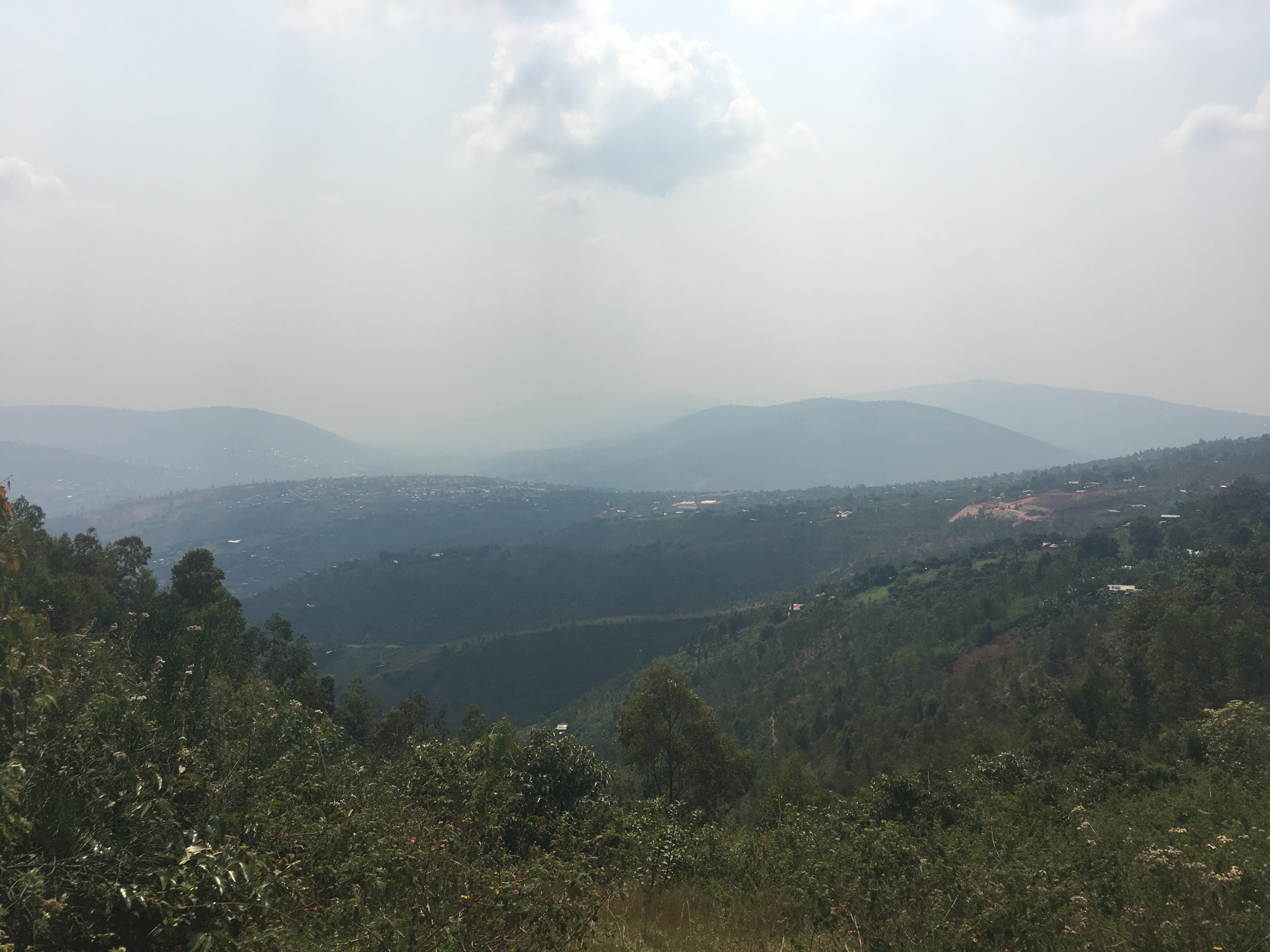The One Where I Check Myself
On Perceptions
I was chatting with Justin, a man from Rwanda, at a networking reception about our experiences working in the human rights field when he said something that I have been contemplating since before arriving in Rwanda:
“People have an idea of Africa and Rwanda without being here, but they don’t know what it’s like until they come here.”
This phrase permeates every aspect of this trip for me. A few months back, when I started to mention that I was going to Rwanda for the summer, people shared their thoughts, feelings, and advice about Rwanda and Africa in general, including the many words of warning about my safety and health. Never having been to Africa myself, I took these remarks to heart and lumped them in with my own biased viewpoint of what Africa and Rwanda entailed. Despite trying to reassure myself  by reading up on the country online, the hundreds of what-ifs that I had gathered and created started to manifest themselves into a subconscious anxiety. When I got off the plane and stepped foot in Rwanda for the first time, I was completely overwhelmed by these small possibilities, which made adjusting to my new home the first week or two very difficult.
by reading up on the country online, the hundreds of what-ifs that I had gathered and created started to manifest themselves into a subconscious anxiety. When I got off the plane and stepped foot in Rwanda for the first time, I was completely overwhelmed by these small possibilities, which made adjusting to my new home the first week or two very difficult.
When Justin said this to me this week, I wanted to jump up and down with relief and excitement because it was spot-on. Obviously, you don’t really know any place until you actually visit it for yourself, but the United States has a certain perception of Africa compared to other continents and countries. Generally, the stories we hear or see on the news or in the media or from others are of a homogeneous culture and landscape rife with poverty and lacking everything from modern comforts to life-sustaining resources. While these perceptions can be accurate in some places, they’re not the full story. I am very aware that many countries are much less developed than Rwanda, and I have a unique perception of Rwanda and the continent in general from my lifestyle in Kigali. But instead of squeezing every other country in Africa into this perception, spending time here has reminded me that African countries are just as diverse in traditions and cultures as countries I have visited in Europe and just as unique in landscape and daily idiosyncrasies as states I’ve been to in the US. This experience has only made me want to tune into my own biases and expand my worldview bubble even further. Allowing anxieties about the millions of negative possibilities that come along with living on Earth to prevent me from learning about and experiencing new cultures is no way to live. I’m proud of myself for pushing past my fears and worries, but Rwanda has taught me that I have so much more to learn, which is something to be excited, not scared, about.
On Networking & Writing
In the office this week, I finished up a few outstanding projects, including the report on the task force meeting that took place last week. I also began preparing a proposal application to get funding from the Open Society Initiative for Eastern Africa, which is a regional office of the Open Society Foundation. OSIEA gives money to mainly local and national NGOs and non-profits around the East African region that focus on improving human rights and strengthening democracy. My job is to apply for funding from the organization by putting together a comprehensive and persuasive document about what RBJ does and what we will do with the money. I have learned quite a few things from working on the Canadian grant proposal the previous week, and I plan to apply these improvements to this proposal. I’m really working on improving my word choice and tailoring the application to this specific audience. That means I have to highlight some of RBJ’s activities in a different light than if I were preparing a proposal for a governmental organization. The proposal has a max word count of  only 700 words, so I have to say a lot in a few words. This is where my journalism degree is coming in handy! I just have to work on brushing off all those skills I learned before opening all those case books.
only 700 words, so I have to say a lot in a few words. This is where my journalism degree is coming in handy! I just have to work on brushing off all those skills I learned before opening all those case books.
I was able to get out of the office a few times this week as well. On Thursday, I went with my colleague to hang rights awareness posters in Rwamagana in the Eastern Province. These posters teach people about the presumption of innocence through a short cartoon. This is part of RBJ’s ongoing mission to educate citizens about their basic legal rights, which increases accountability among governmental officials. We went to highly-trafficked areas around the district, including the hospital, a church, and the police station, for the best chance of people seeing the information.
Afterwards, we rushed back to Kigali to attend a Human Rights Defenders meeting at the Dutch Embassy. These meetings take place about once a month, and they gather together local and international NGOs, non-profits, and embassies to talk about human rights topics in Rwanda and the progress that these organizations have made in improving the respect of human rights. This meeting was about the Universal Periodic Review conducted by the United Nations. Every few years, each UN member state government puts together a review of the human rights situation in their country and the improvements they have made since the last UPR. The government works with local and international organizations to properly record all violations and improvements. The UN then gives recommendations for how the country can improve their human rights situation further. Rwanda had their first UPR done in 2011, their second in 2015, and a third will be done in 2020. In 2015, the country was given 229 recommendations, and the government accepted and agreed to implement 50 of them. So far, the government has successfully implemented 44 of those 50 recommendations, and human rights groups are helping the government finish implementing the last 6 by May 2020. This meeting was to offer support and advice to the organizations who are directly helping the government implement the last few recommendations. It was interesting to hear from the dozen or so people talk about what can be improved and how to work with the government. As someone who is contemplating working in the US government or an international governmental organization, it was helpful to see the viewpoint from the private side.
On Friends
I’m finally feeling like I’m getting to know Kigali well and forming some solid groups of friends. I met two girls from the US, who are also graduate students interning at organizations here for the summer, in my guest house, and we became really close really quick. One of the girls has classmates interning here as well, and we have now formed an activities group, which means I can avoid having to do things alone! On Monday, we all signed up for a Rwandan dance class at a local art and dance center. I’m not a dancer at all, but I thought I started to feel the music and get a hang of the steps by the end of the class. But after our instructor filmed us so we could practice at home, I realized that I looked nothing like the African dancers, who can easily sway to the music in a series of complicated steps. It was still a great way to try something new and get a surprisingly good workout in!
and we became really close really quick. One of the girls has classmates interning here as well, and we have now formed an activities group, which means I can avoid having to do things alone! On Monday, we all signed up for a Rwandan dance class at a local art and dance center. I’m not a dancer at all, but I thought I started to feel the music and get a hang of the steps by the end of the class. But after our instructor filmed us so we could practice at home, I realized that I looked nothing like the African dancers, who can easily sway to the music in a series of complicated steps. It was still a great way to try something new and get a surprisingly good workout in!
On Saturday, my friend and I joined our running club at one of the member’s houses for a homemade meal. He made us pesto pasta from scratch, salad and homemade brownies (which I have been craving for weeks). It was great to relax on his porch, overlooking the hundreds of hills in the city, while casually chatting with friends. It really made Kigali feel like home.
On Sunday, my friends from the guest house and I decided to hike Mount Kigali. Standing at 5,900 feet, it’s the highest point of elevation in the city. We probably picked the worst possible day and time because we started  at noon on a very hot day. But we were determined to hike up the hill on our day off, so we reluctantly caught a moto to the base in Nyamirambo. Unfortunately for us, the entire highway up the mountain was under construction. They don’t close the roads here when they are being worked on, so we decided to just chance it. The first thirty minutes, we weaved through the tar-setting trucks and workers constructing the drainage system. We then reached a dirt path, where we finished the hike up the mountain in a quiet neighborhood. We stumbled upon a horse farm, which had beautiful views of the city’s valleys and hills. After finding some shade and drinking all of our water, we started down the hill. An hour later, we sat down at a small, well-known Rwandan restaurant, Green Corner. My friends ordered a big fish, which is a fish caught in Lake Kivu in the north, stuffed with spices and onions and then grilled. Rwandans traditionally share one fish and eat it all with their hands, but my friends opted for silverware. I stuck with some rice and beans, which was delicious after a long hike. We then caught a moto back to our apartment and enjoyed a well-deserved shower and nap!
at noon on a very hot day. But we were determined to hike up the hill on our day off, so we reluctantly caught a moto to the base in Nyamirambo. Unfortunately for us, the entire highway up the mountain was under construction. They don’t close the roads here when they are being worked on, so we decided to just chance it. The first thirty minutes, we weaved through the tar-setting trucks and workers constructing the drainage system. We then reached a dirt path, where we finished the hike up the mountain in a quiet neighborhood. We stumbled upon a horse farm, which had beautiful views of the city’s valleys and hills. After finding some shade and drinking all of our water, we started down the hill. An hour later, we sat down at a small, well-known Rwandan restaurant, Green Corner. My friends ordered a big fish, which is a fish caught in Lake Kivu in the north, stuffed with spices and onions and then grilled. Rwandans traditionally share one fish and eat it all with their hands, but my friends opted for silverware. I stuck with some rice and beans, which was delicious after a long hike. We then caught a moto back to our apartment and enjoyed a well-deserved shower and nap!